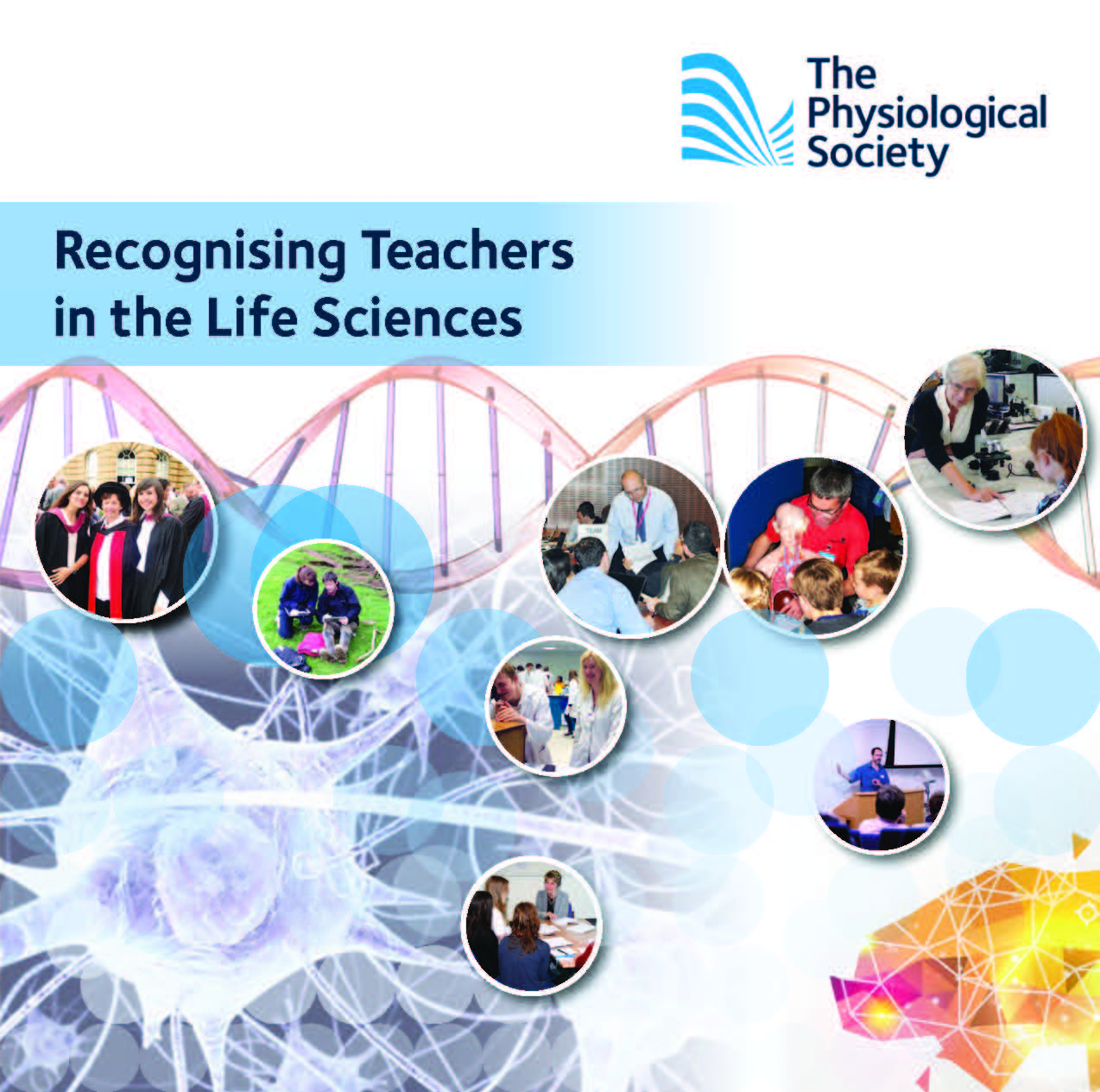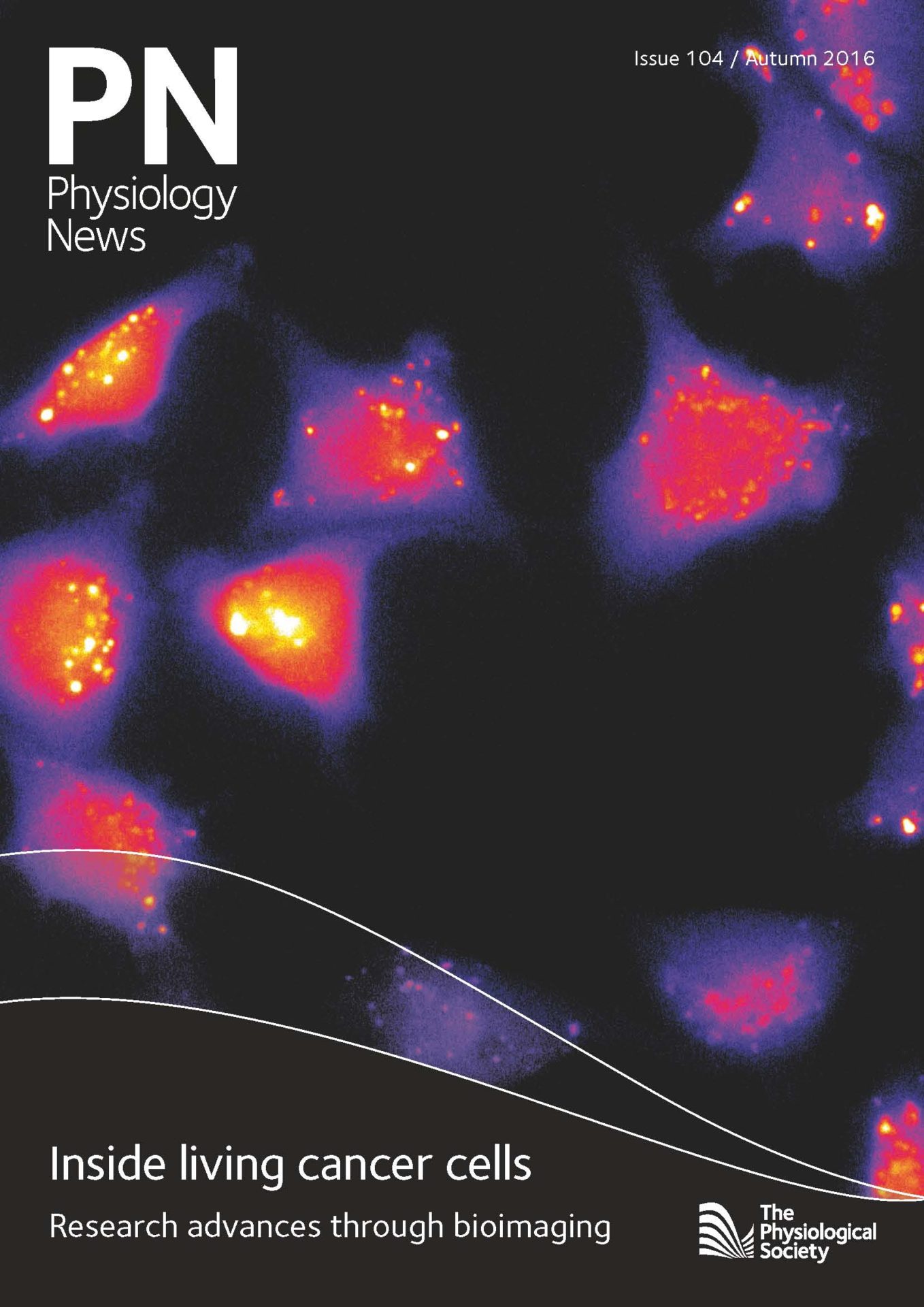
Physiology News Magazine
A Celebration of Education Focussed Careers
A review of Recognising Teachers in the Life Sciences, published by The Physiological Society
News and Views
A Celebration of Education Focussed Careers
A review of Recognising Teachers in the Life Sciences, published by The Physiological Society
News and Views
Katharine Hubbard
School of Environmental Sciences, University of Hull, UK
Royal Society of Biology Higher Education BioScience Teacher of the Year 2016
https://doi.org/10.36866/pn.104.15
|
|
School of Environmental Sciences, University of Hull, UK Royal Society of Biology Higher Education BioScience Teacher of the Year 2016 |
Inspiring and training the next generation of Biologists is one of the most important activites undertaken in universities, and can be one of the most rewarding. However, the role of teaching in UK universities is coming under increased scrutiny with the forthcoming Teaching Excellence Framework (TEF), which may include metrics to assess how institutions ‘encourage and reward excellent teachers’. The lack of parity between education- and research-focussed careers in Higher Education has been repeatedly highlighted. I know of many early career academics who have been told that there is ‘no such thing’ as a teaching career in higher education, despite the clear need for high quality teaching throughout the sector. To raise the profile of biology educators, The Physiological Society, in collaboration with the Academy of Medical Sciences (AMS), Royal Society of Biology (RSB) and the Heads of University Biosciences (HUBS) have published Recognising Teachers in the Life Sciences which highlights the careers of academics for whom promotion has been achieved primarily through teaching.

The glossy booklet profiles 32 education-focussed academic in the life sciences from a range of institutions including Russell Group and post-92 universities. Each case study includes a career timeline, a list of professional memberships, awards and prizes and a short interview with the academic about their career development. All started their careers with biology PhDs or equivalent professional qualifications, and now work in a diversity of teaching roles. Some are now exclusively education focussed while others combine significant teaching activities with discipline-based research. 20 of the contributors are professors, most have won awards for the quality of their teaching and several are National Teaching Fellows. The case studies also highlight the range of scholarly contributions or leadership roles of the contributors, who include grant holders, text book authors, journal editors, Directors of Learning and Teaching, Associate Deans and Pro-Vice chancellors. What is most striking about the contributors is their passion for and dedication to education; many participants discuss how teaching was significantly more personally rewarding than research, and that it was an active choice to develop an education-focussed career. The booklet therefore provides a series of much needed role models for those wanting to develop an academic teaching career, and celebrates the contributions of those who inspire the next generation of biologists.
However, the most important material comes at the end, which lists ‘Top tips’ for advancing an education-focussed career collated from the contributors. These emphasise the message that building a career takes more than excellent classroom teaching, but also requires developing a profile outside of your institution, taking on positions of leadership and building a portfolio of evidence to demonstrate commitment to education. A related project from the RSB and The Physiological Society has recently established a Teacher Career Progression Framework to help education-focussed academics align such activities with promotion criteria. While Recognising Teachers in the Life Sciences rightfully celebrates the achievements of some of our best bioscience educators, its real value will come through providing examples of successful teaching careers to individuals looking to advance, but also to university promotion panels and policy makers. Ensuring reward and recognition applies equally to those on teaching and research contracts will only become more important in the UK Higher Education sector, and this collection of inspiring case studies is a small but very welcome contribution.

